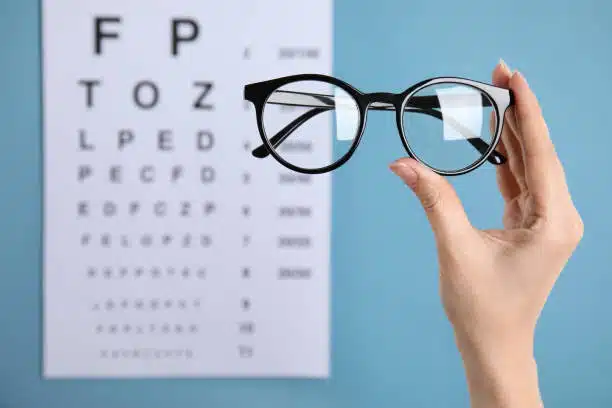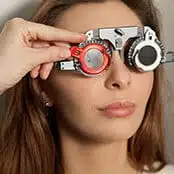
Is it necessary to see your eye doctor in Washington, MO, as frequently as you see your primary care physician or dentist? The short answer is probably not, yet much depends on your age, overall health, and the health of your eyes.
Here’s more information on the topic, so you can learn how to take the best care of your precious eyesight and know when to see an eye doctor.
Age Is Not Just a Number
Your age helps determine how often you should see an ophthalmologist or optometrist for a complete eye exam. A complete eye examination not only determines your visual acuity–whether or not you need corrective lenses–but also if your eyes are healthy. You only get one set of eyes and their health is critical to your overall well-being and ability to function.
Here is how age relates to seeing your eye doctor.
Children
Up to school age, your child’s pediatrician will do a vision screening with the periodic well-child exam. The doctor will look for common vision development problems such as nearsightedness and strabismus, or crossed eyes. By toddlerhood, your child should see a pediatric ophthalmologist for a comprehensive eye and vision exam. When they start school, follow the recommendations of the eye doctor regarding corrective lenses, if needed, and periodic eye checks.
Adults
Young adults ages 20 to 30 should see an eye doctor for a check-up every five to 10 years, barring any eye health or visual acuity problems. For middle-aged individuals, eye exams should take place every two to four years, and for those ages 55 to 64, every one to three years, as the ophthalmologist advises.
Those 65 and older should get annual eye examinations, as this is the time when age-related problems, such as glaucoma, cataracts, and macular degeneration can begin to develop. As these eye problems are serious, the earlier they are detected, the easier and more effective treatment will be.
Additionally, any child, teen, or adult should see their eye doctor more frequently when vision changes drastically or if there is an:
- Eye injury
- Acute infection
- Chronic health or eye health condition
- The aspect of family history which warrants additional eye health monitoring
Never Ignore Eye Problems
While many eye issues may be temporary, your eye doctor truly is the best judge of what is serious and what is not. So, it’s time to see your ophthalmologist in the St. Louis area if:
- Your vision is suddenly or consistently blurry
- You see dark specks or flashing lights in your field of vision
- You have eye pain, swelling, discharge, or changes in how your eyes align
- Your eyes are chronically dry, itchy, and irritated
- Light sensitivity is a continuing problem
- Headaches frequently develop after you use your eyes for close work or reading
- Your color perception is suddenly different
Also, many health conditions can impact your eye health. These include diabetes, hypertension, long-term use of some prescription medications, multiple sclerosis, arthritis, STDs, stroke, blood clotting disorders, and thyroid gland disease. So, a complete eye exam can alert you to the presence of these problems or how a known problem is impacting your vision and eye health. Always heed the recommendations of your medical specialist and/or PCP regarding seeing an eye specialist.
The Best Eye Doctors in Washington, MO
At Advanced Sight Center in Washington, MO, our board-certified ophthalmologists and optometrist perform thorough eye examinations and care for people of all ages. Our diagnostic assessments are precise, and our doctors are up to date on the latest in surgical and medical interventions.
Please call us at (636) 239-1650 for your appointment time, or request one online. We hope to see you soon!



